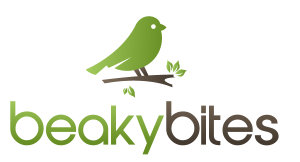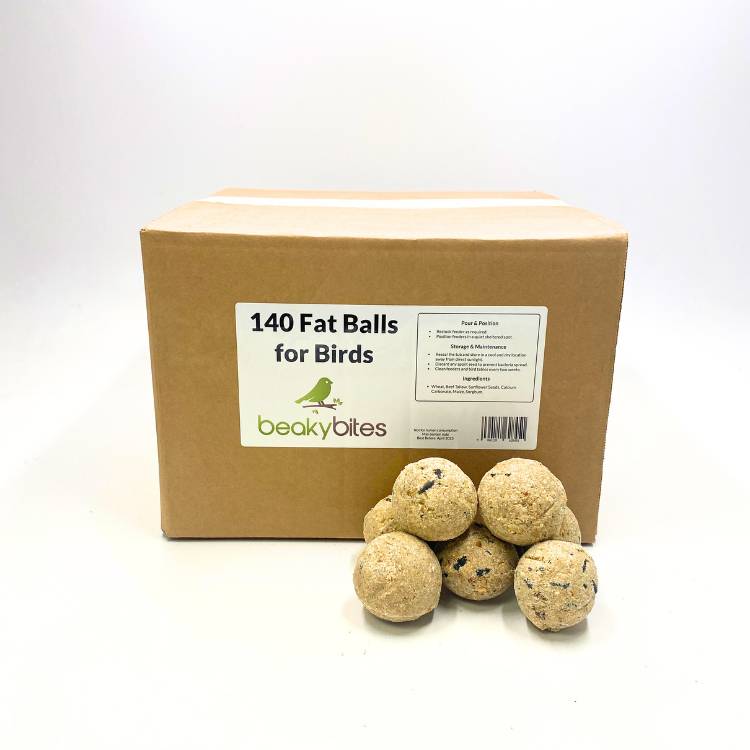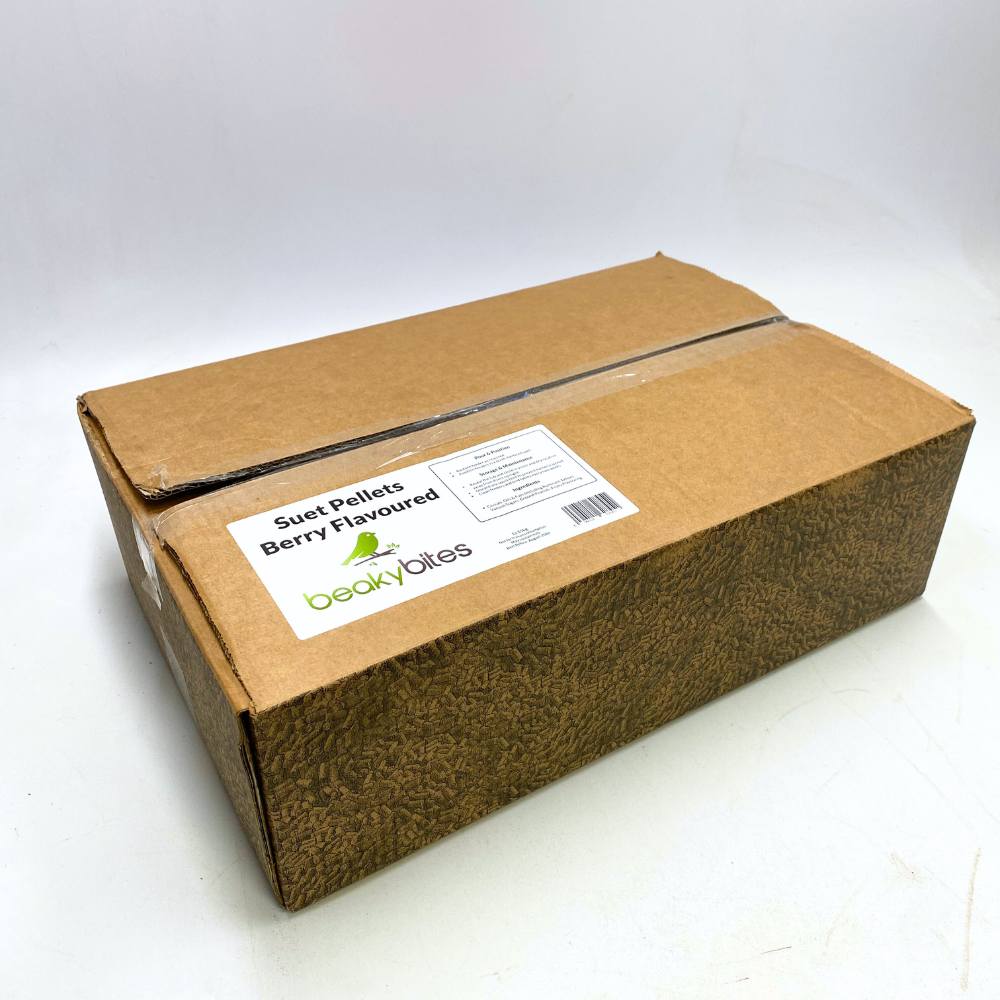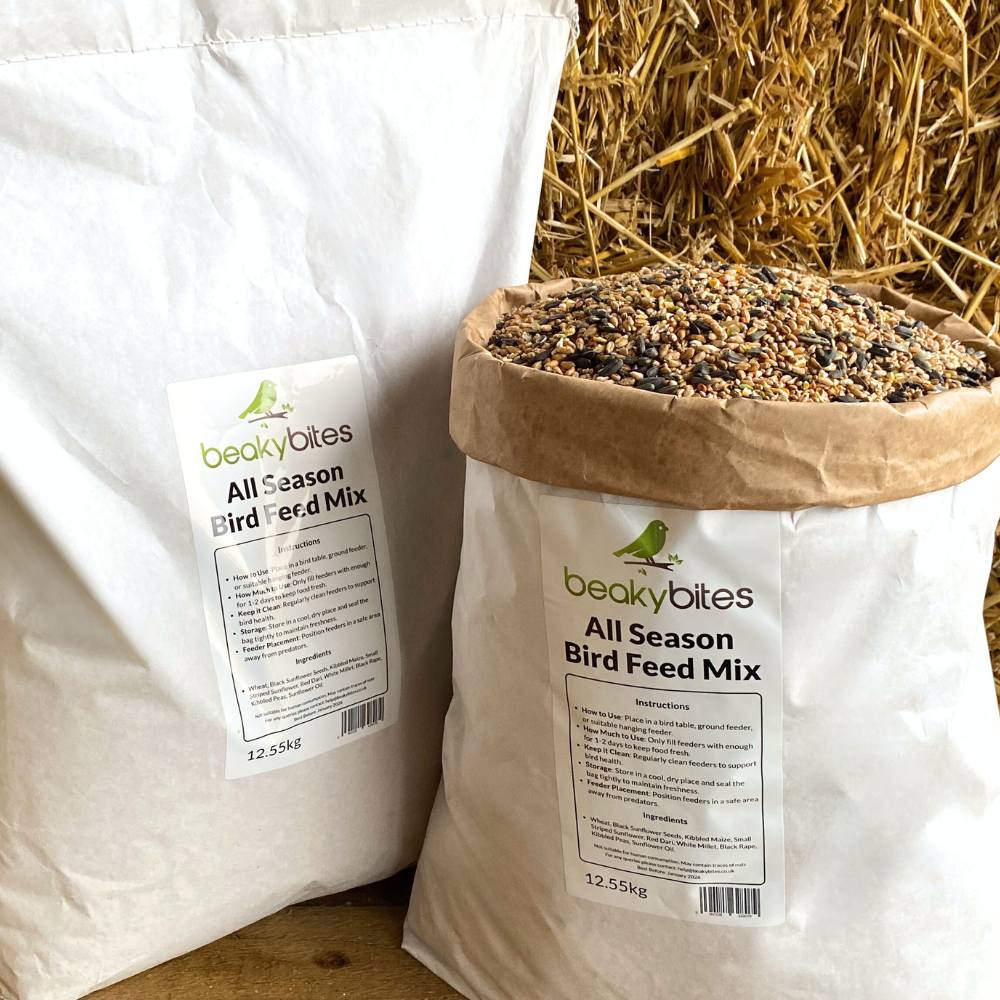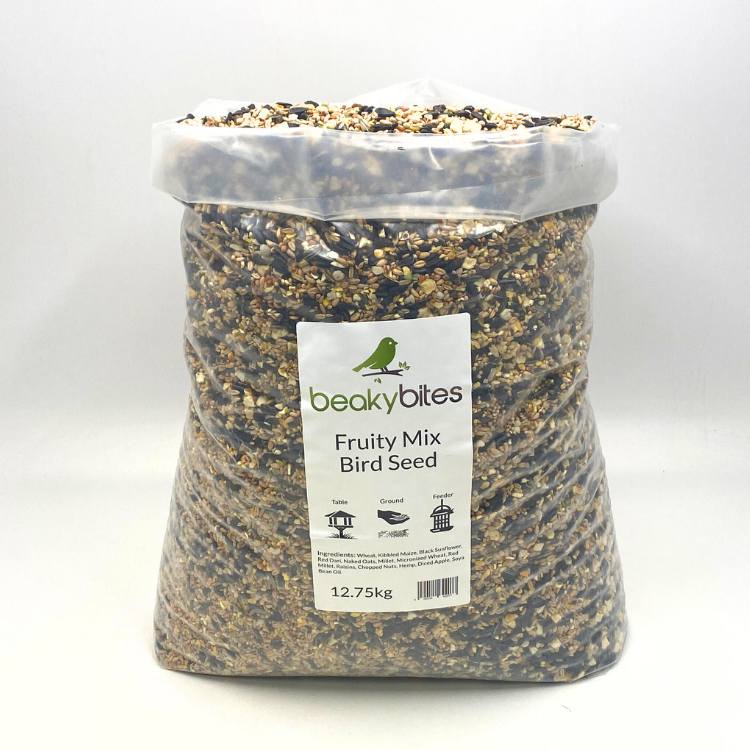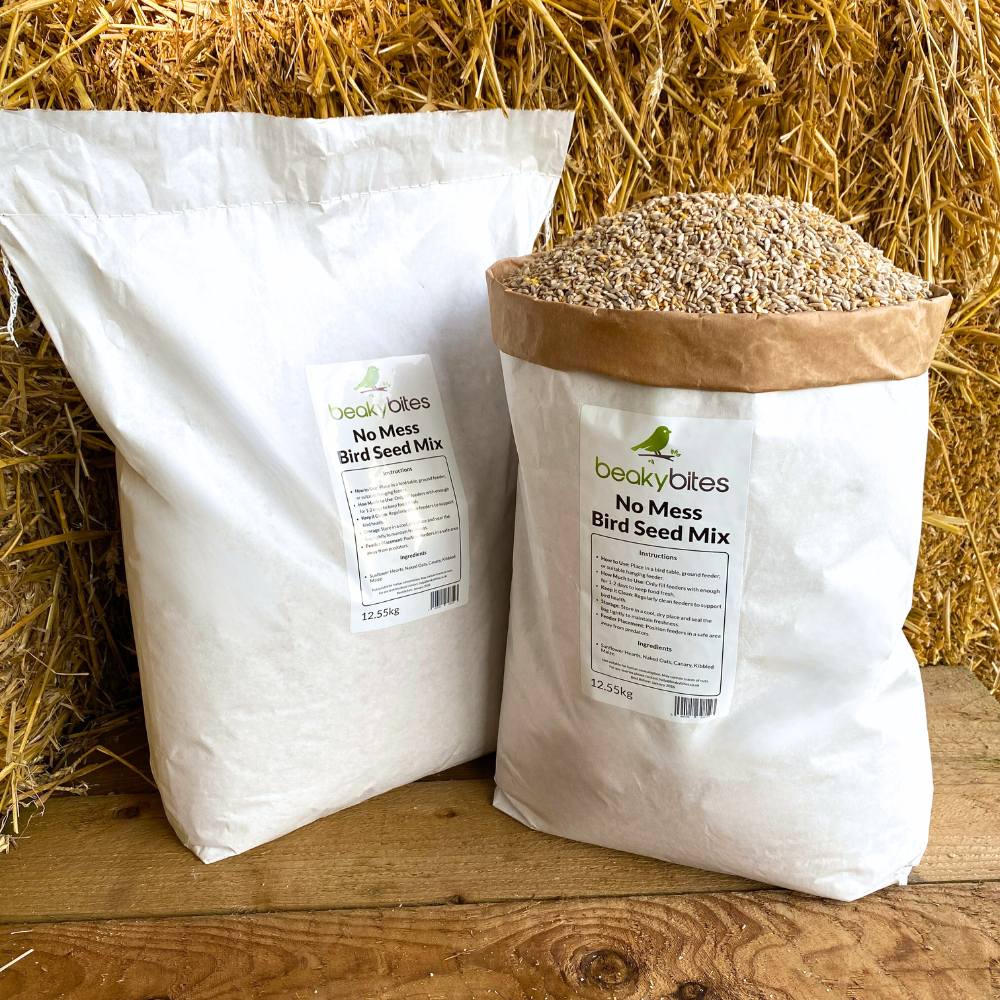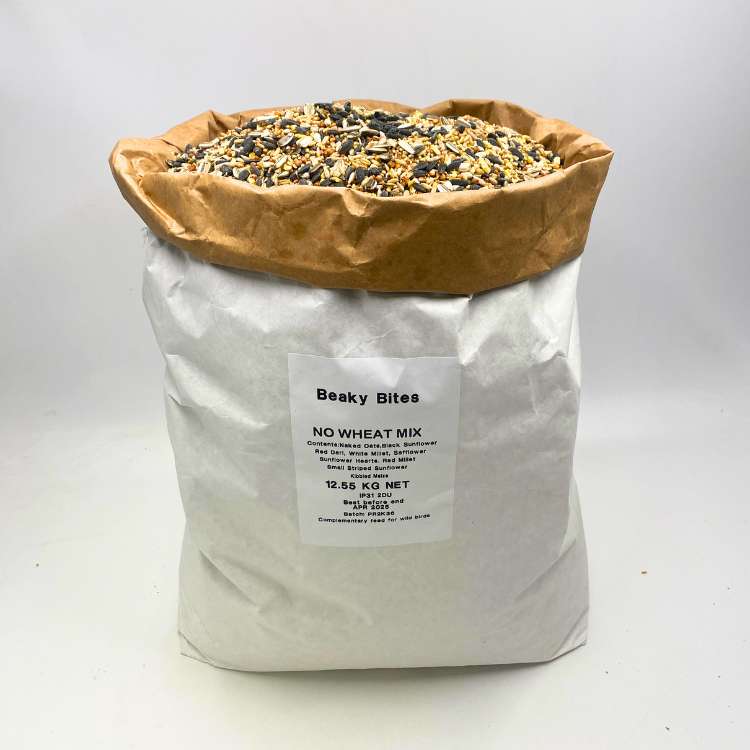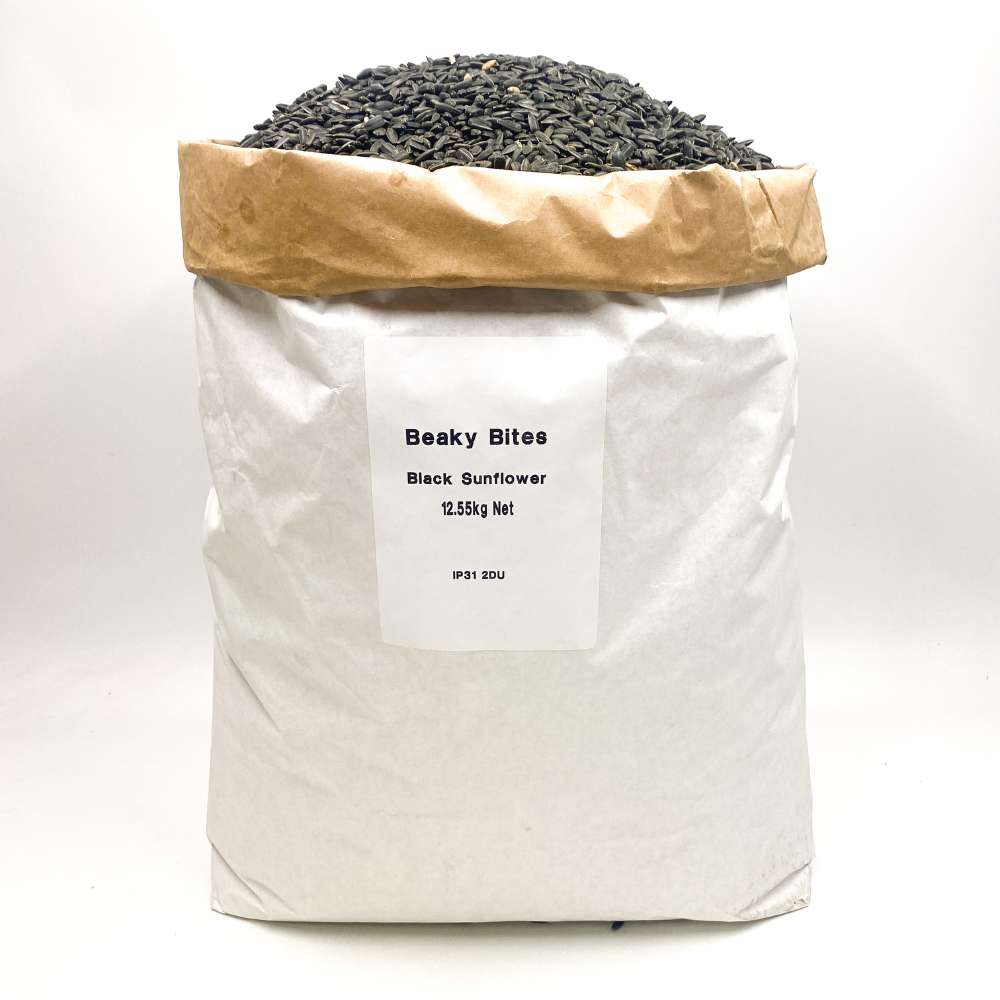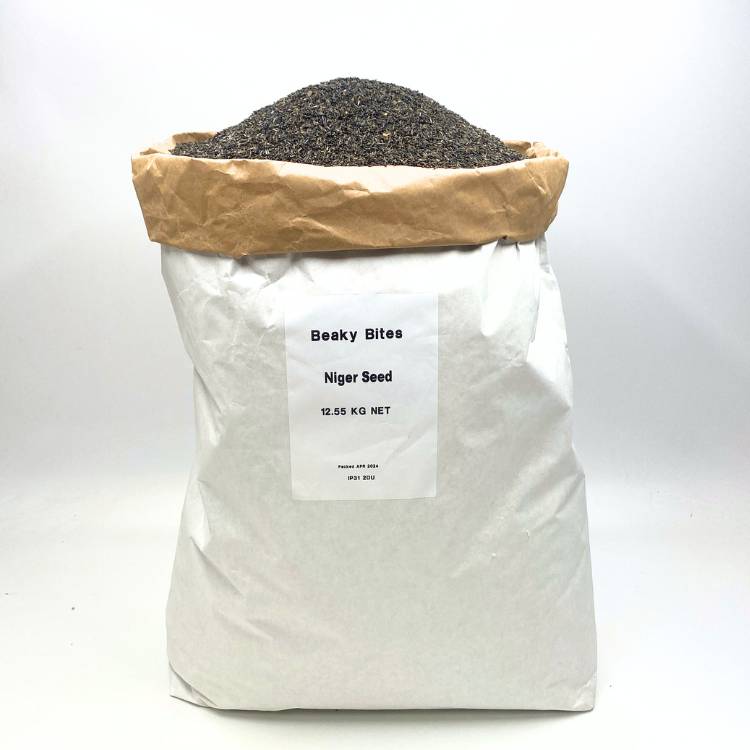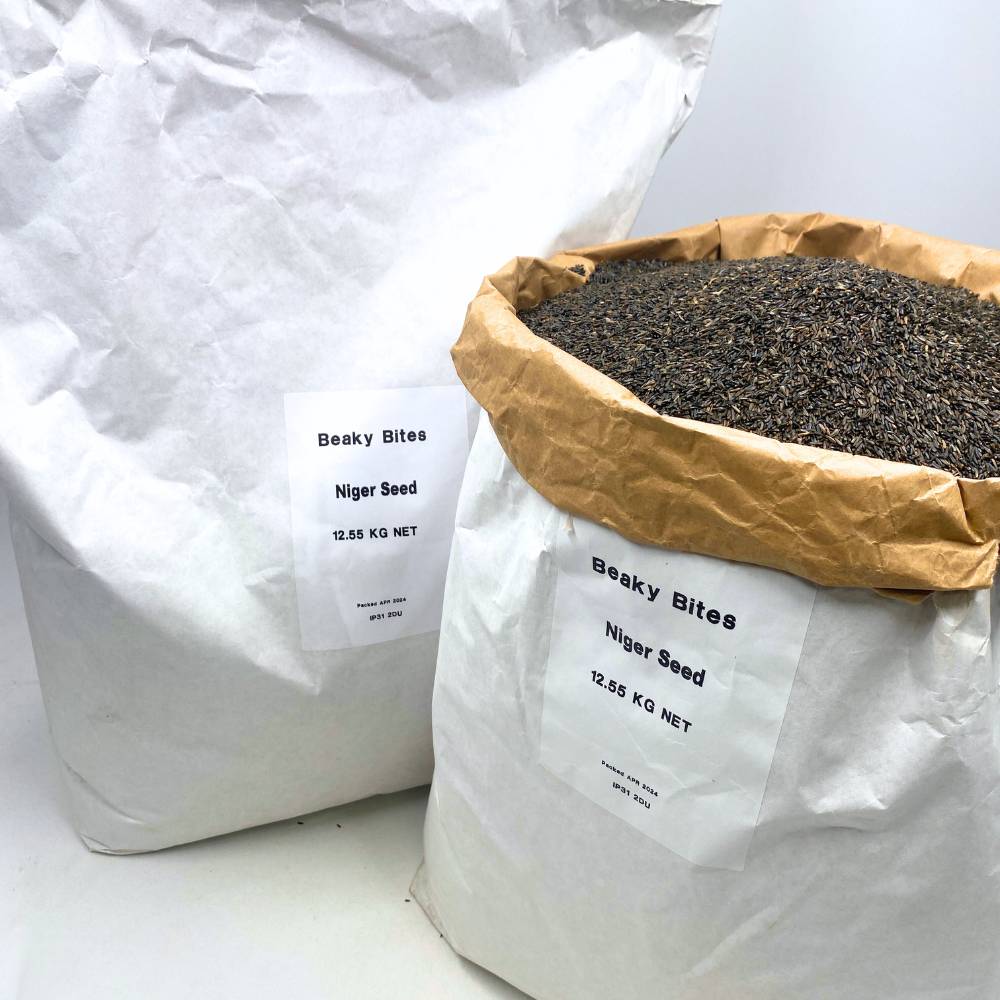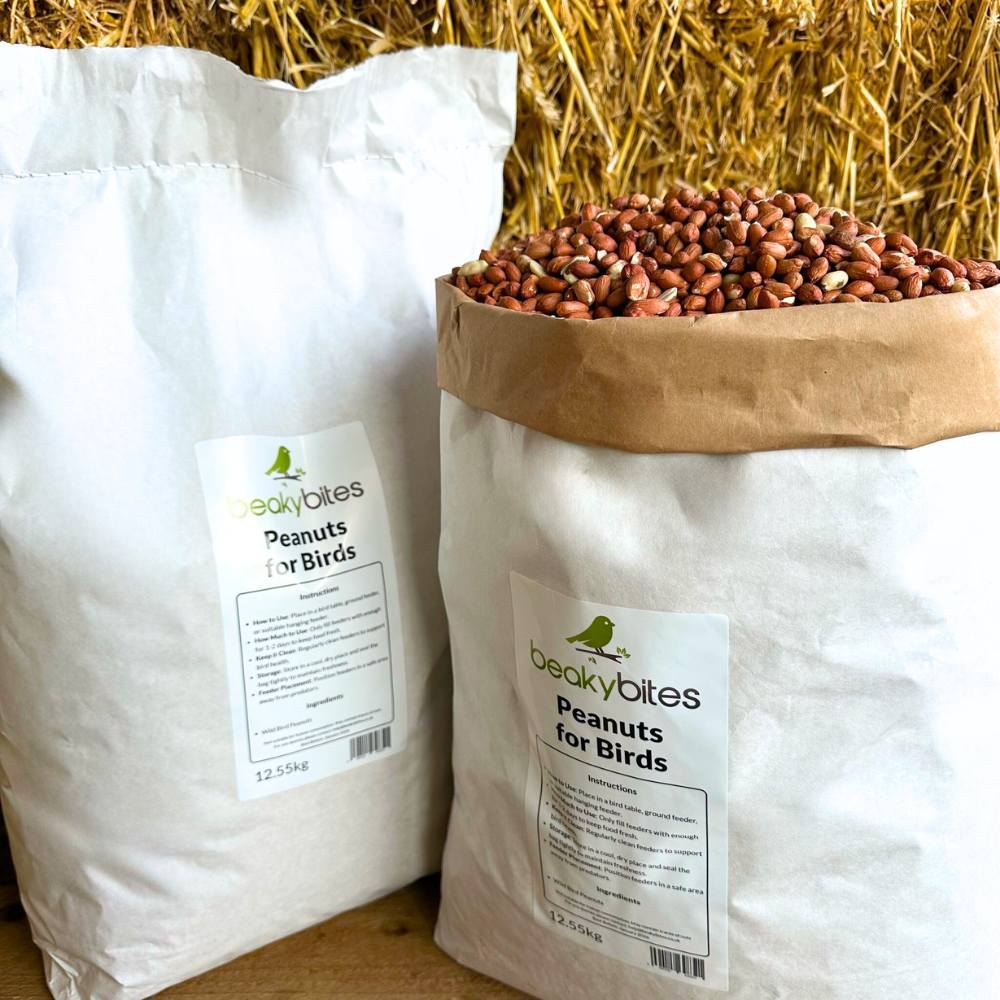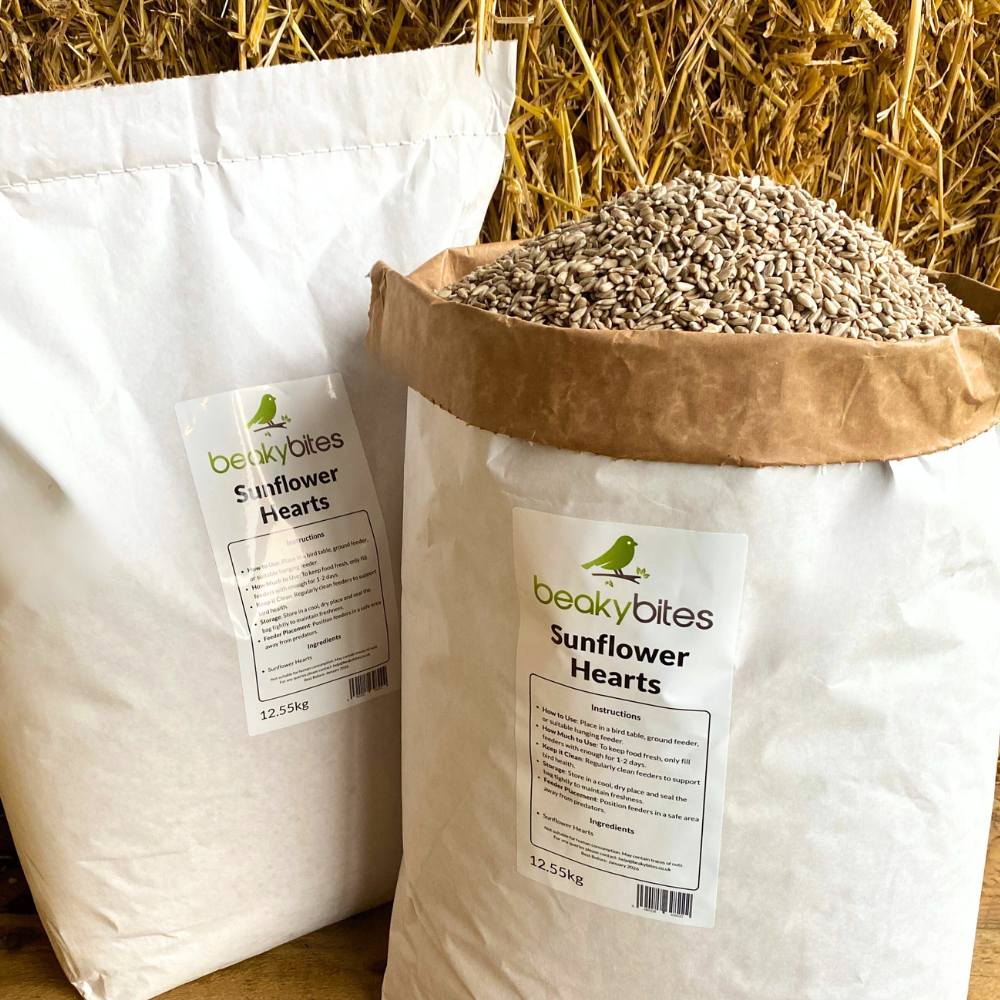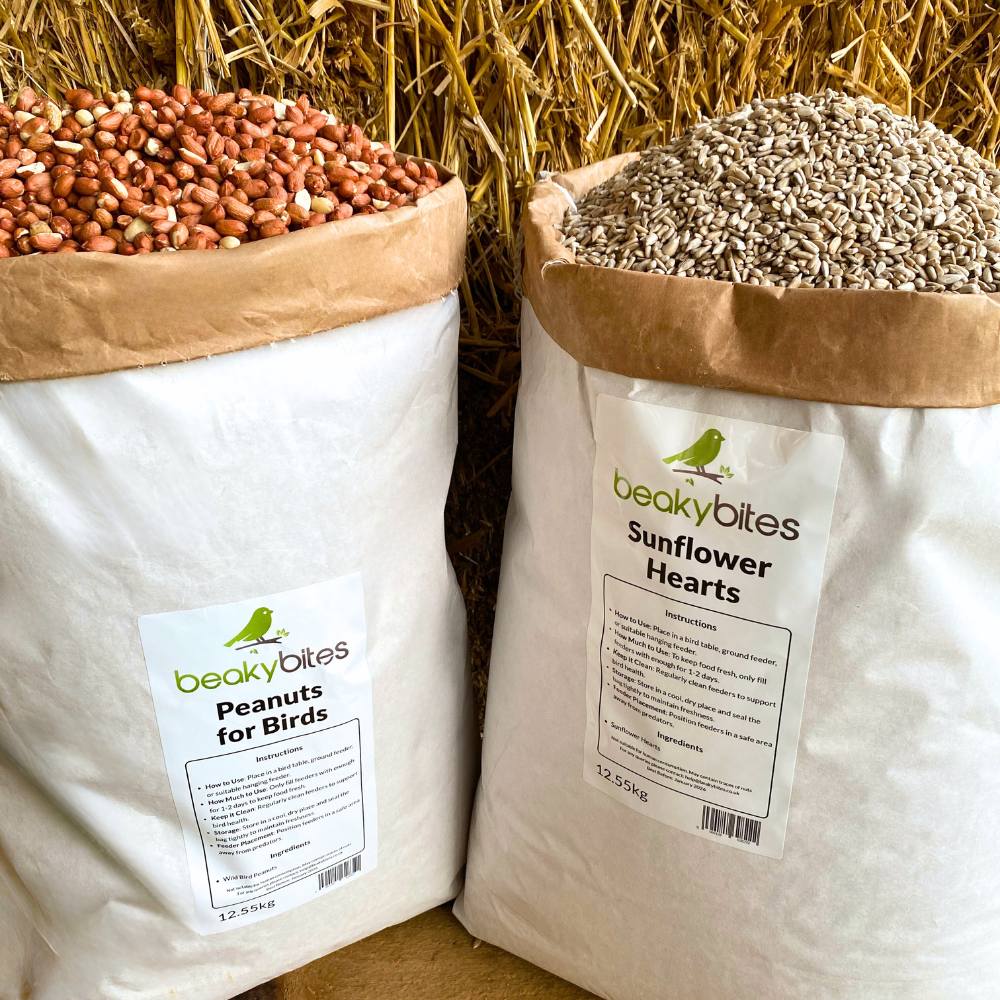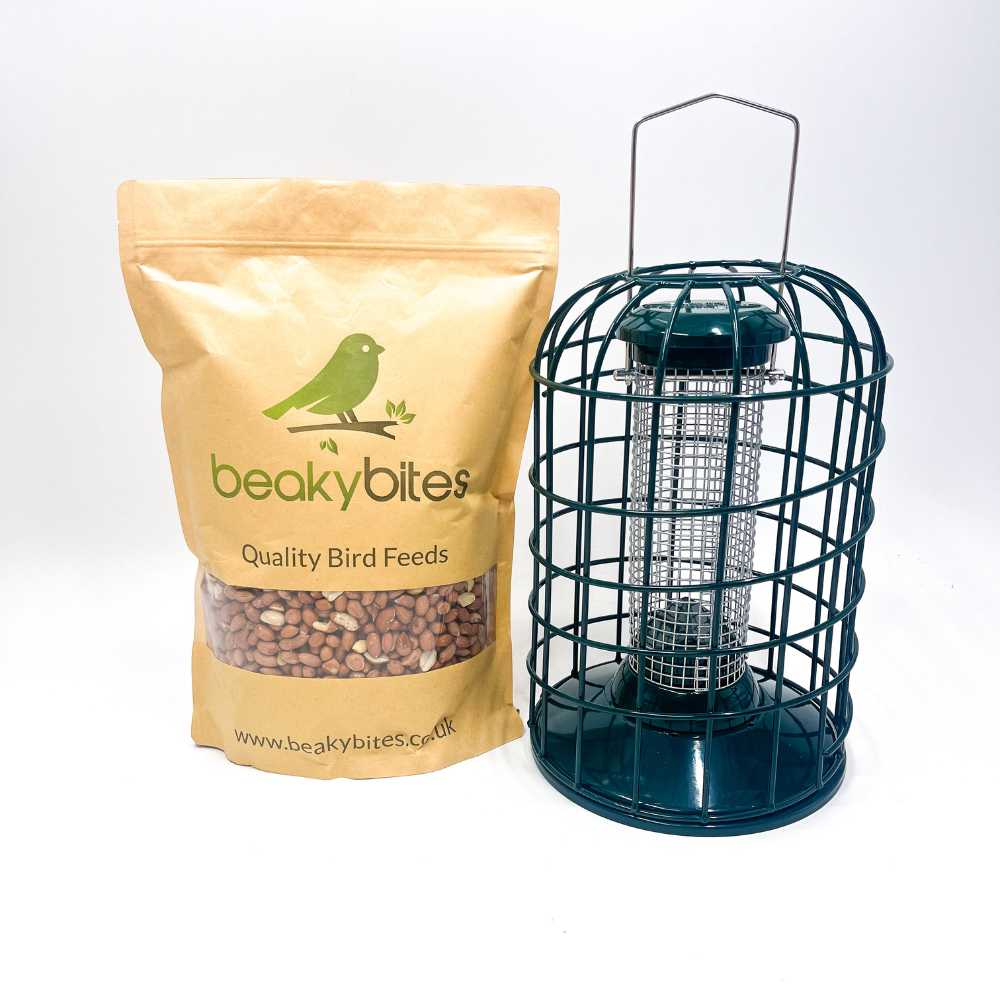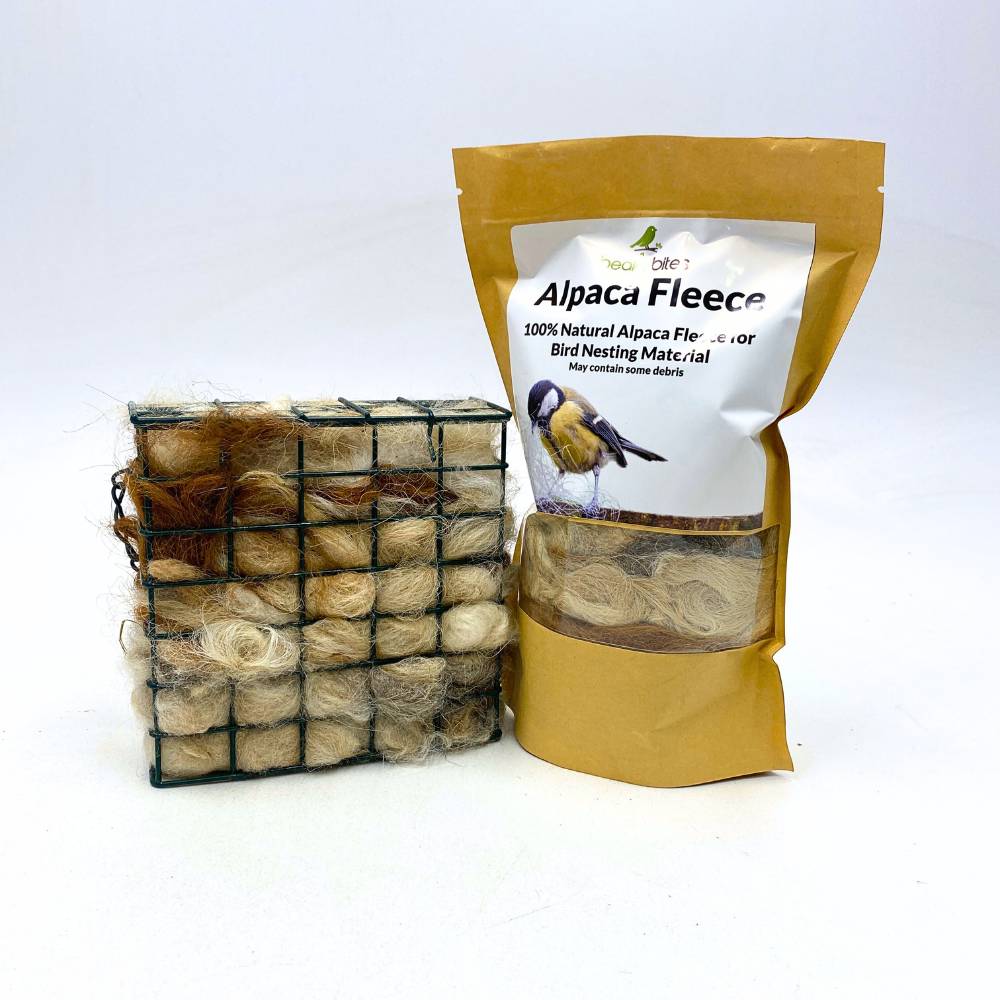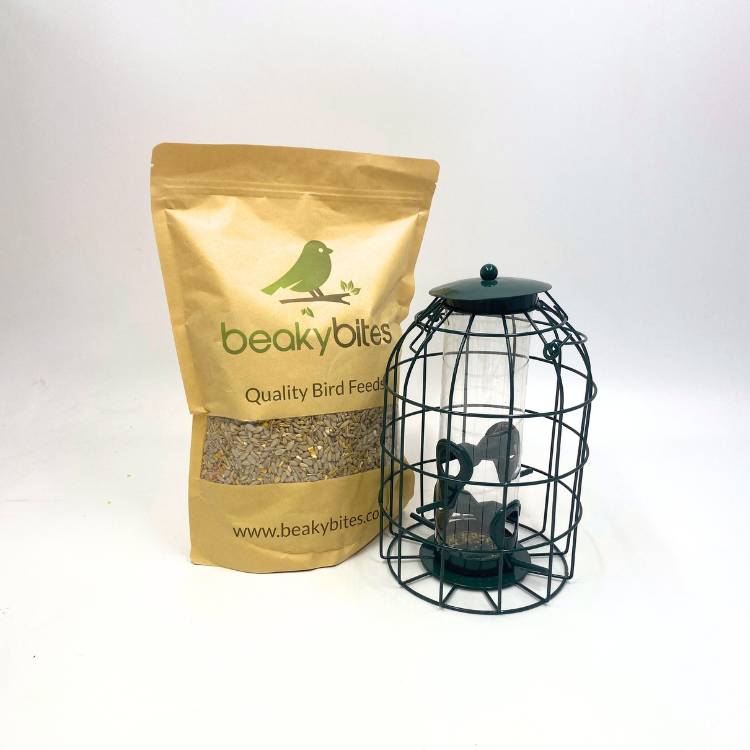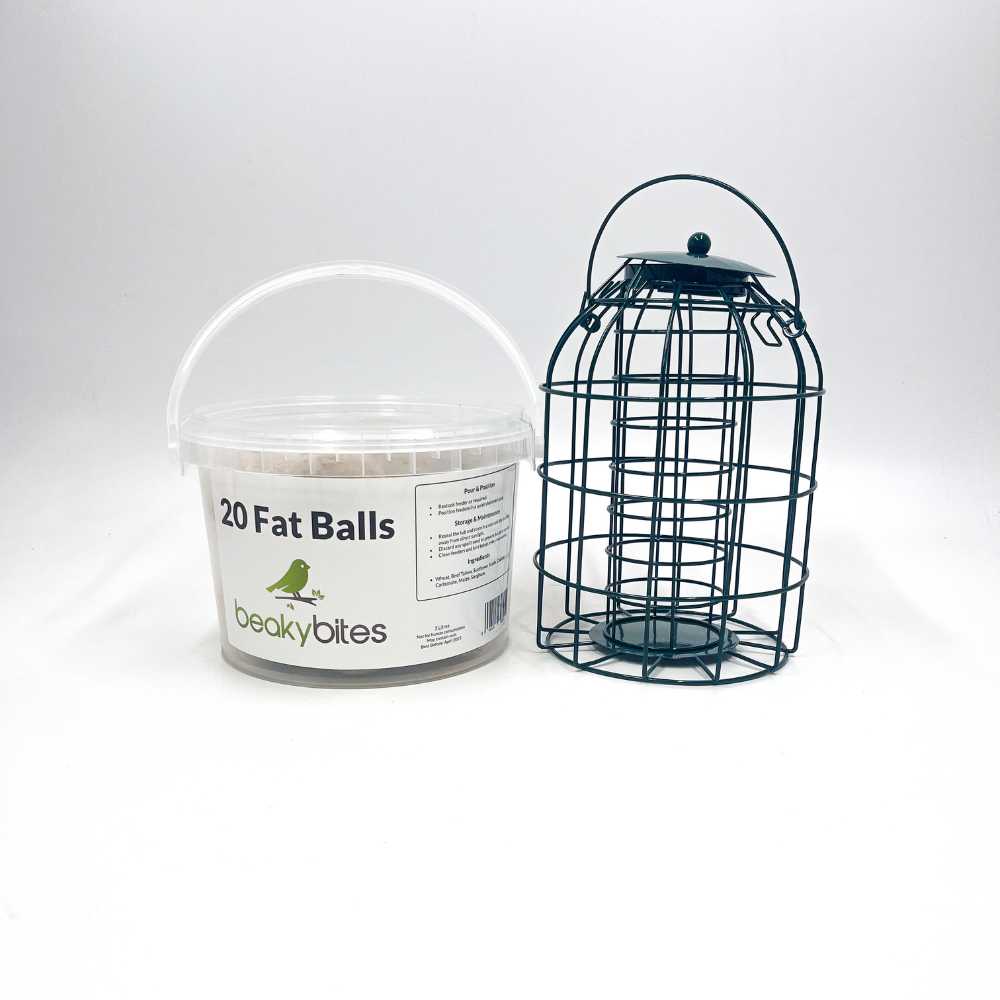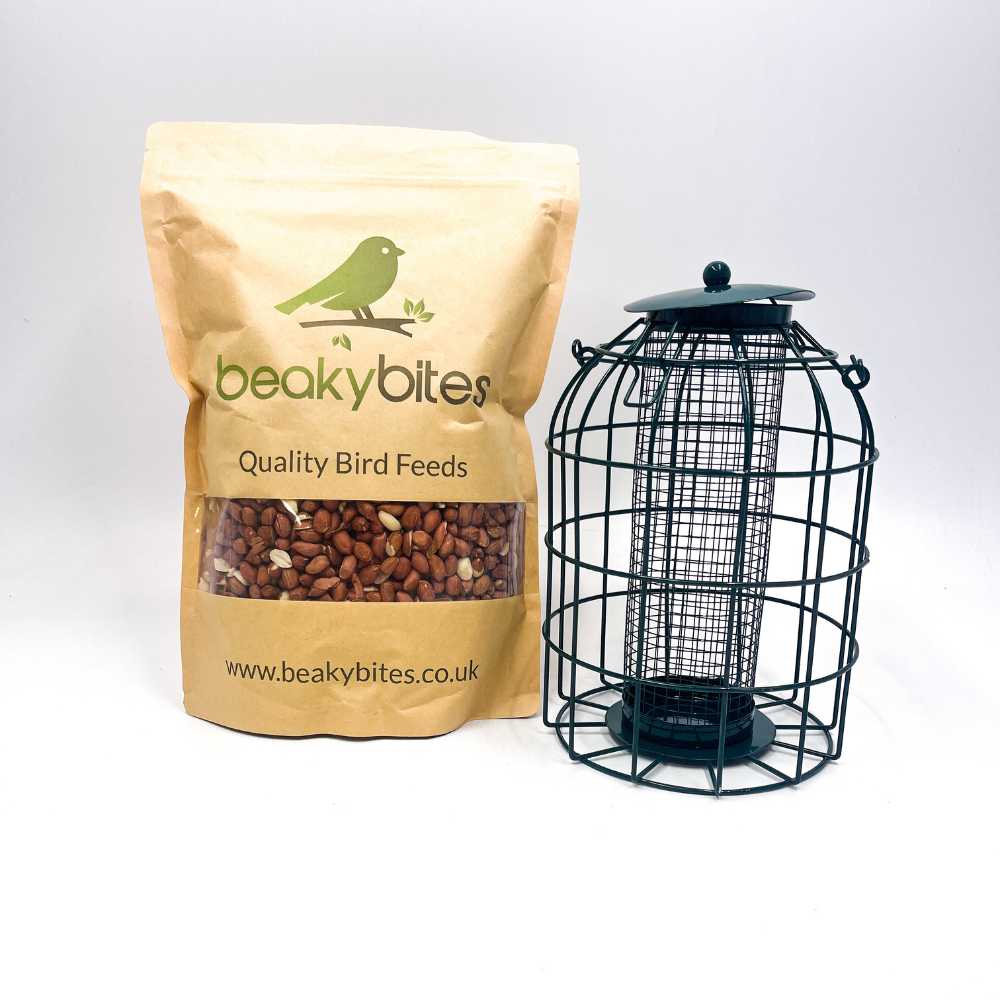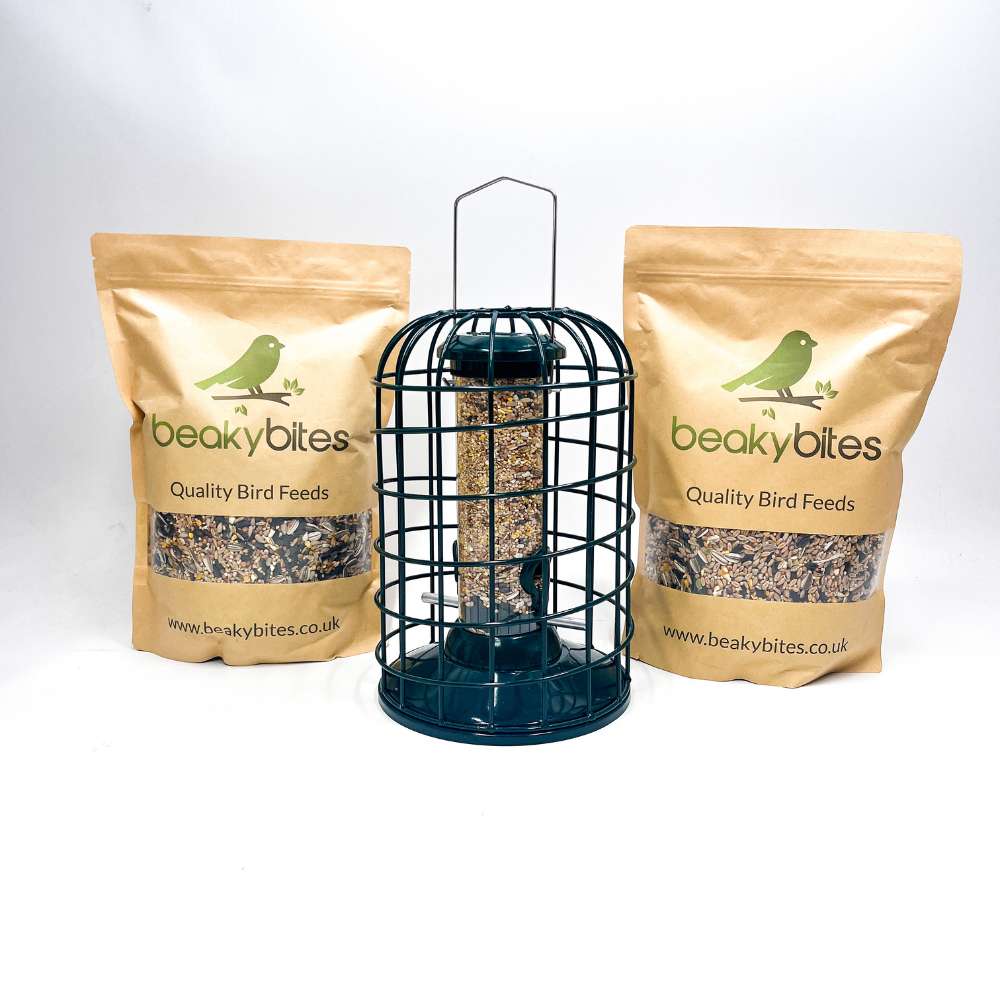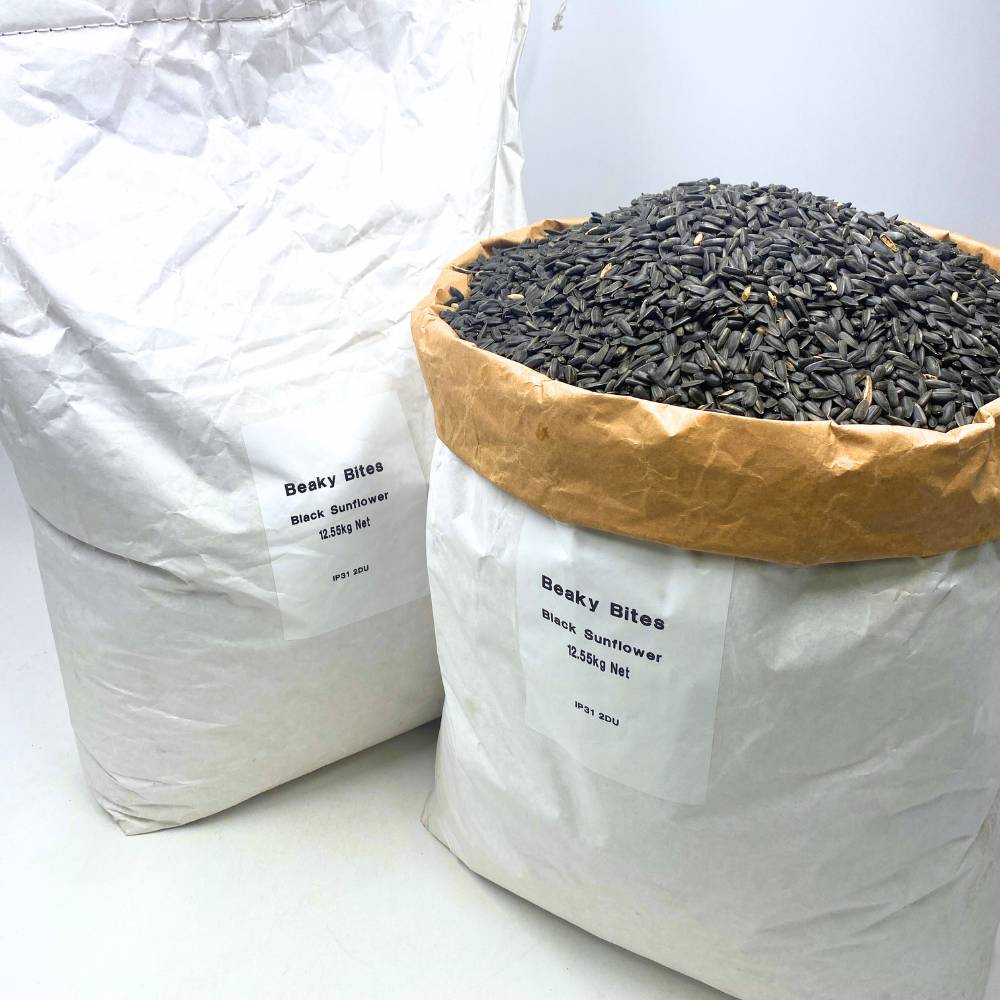Best Bird Feeders: Top Tips for Feeding Garden Birds
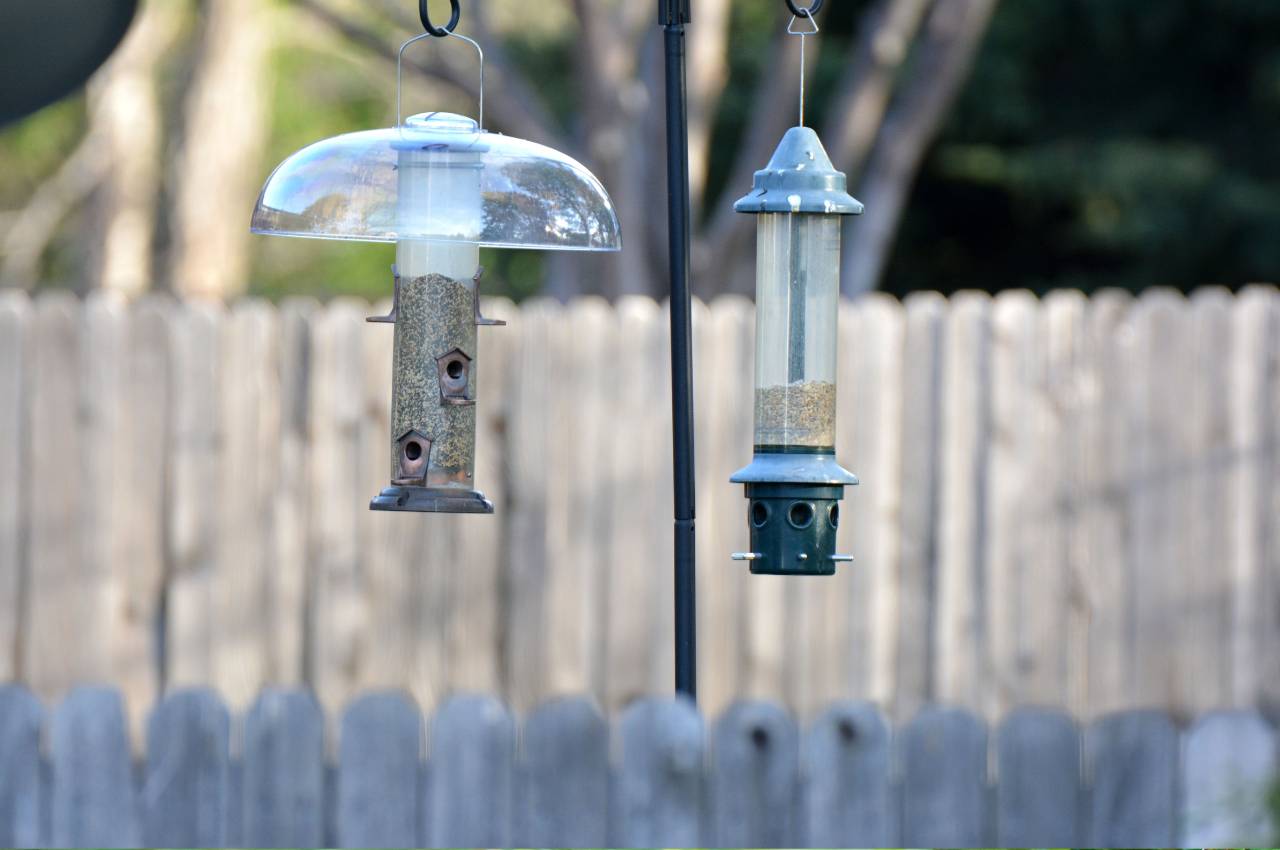
Choosing the right birdseed feeder will attract different birds to your garden and keep them coming back. In this post we’ll look at the types of birdseed feeders, how to cater for different bird species and how to deal with squirrels and pigeons.
Quick Summary
- Different types of birdseed feeders (tube, hopper, platform) cater for different bird species and feeding habits, so you get a diverse bird population in your garden.
- Regular maintenance and placement of bird feeders is key to attracting birds and preventing disease, and considering the food types preferred by your target bird species.
- Seasonal adjustments in feeding (high energy in winter, high protein in spring/summer) will support the changing nutritional needs of birds throughout the year.
Birdseed Feeders
Bird seed feeders come in all shapes and sizes, each designed for different bird species. Knowing the different types of feeders will help you choose the right ones for your garden.
Tube feeders attract small birds, hopper feeders larger birds, and platform feeders various birds, so there’s a birdseed feeder for every garden.
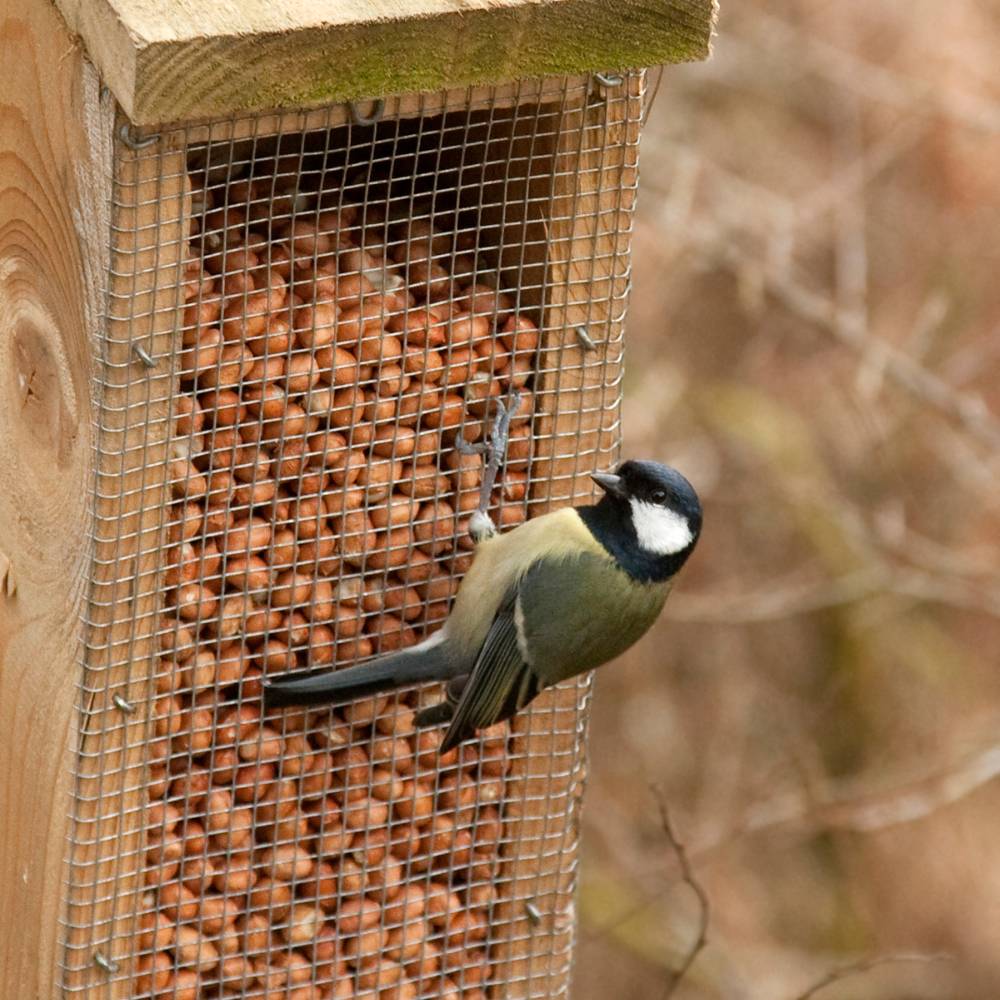
Tube Feeders
Tube feeders are great for small birds like house sparrows, blue tits and finches. These feeders are cylindrical in shape, with multiple feeding ports, so several birds can feed at once. The design of tube feeders keeps the seeds dry and clean, so a safe feeding environment for your visitors.
One of the main benefits of tube feeders is they cater for small birds and prevent larger birds from getting to the food. This is especially useful if you want to attract specific bird species like finches which prefer the small feeding ports of tube feeders. Having tube feeders in your garden will bring small, colourful birds into your garden all year round.
Hopper Feeders
Hopper feeders are designed to take a variety of seeds so are good for larger birds. They have a large capacity so you’ll need to refill less often. Hopper feeders are semi-enclosed so the seeds are protected from the elements and stay dry and fresh for longer.
Larger birds like cardinals and woodpeckers love hopper feeders because of the space and seed capacity. Hopper feeders are good for a diverse range of bird species, including bigger birds. They’re sturdy and versatile so a great option for year round feeding.
Platform Feeders
Platform feeders are great for those who want to attract small and large birds. These feeders have an open flat surface so multiple birds can feed at once, perfect for ground feeders like blackbirds and sparrows. Platform feeders are easy to clean and maintain so a hygienic feeding environment for your visitors.
One of the main benefits of platform feeders is they can cater for a wide range of bird species. Whether you have small birds like finches or larger ones like jays, platform feeders will cater for them, a versatile feeding solution for your garden. The open design of platform feeders will make your garden a popular spot for all birds.
Bird Tables
Bird tables are a versatile feeding platform that can take a wide range of foods, from seeds and suet to kitchen scraps. They have a flat open design so all birds can access, including ground feeding birds like robins, blackbirds and dunnocks. Unlike hanging feeders, bird tables provide an easy to reach feeding spot, especially in harsh winters when food is scarce.
All birds are included with bird tables so they’re a great addition to any garden. Bird tables provide a reliable feeding spot so birds can conserve energy during tough times. So they’re an essential part of a bird friendly garden and will attract a wide range of bird species all year.
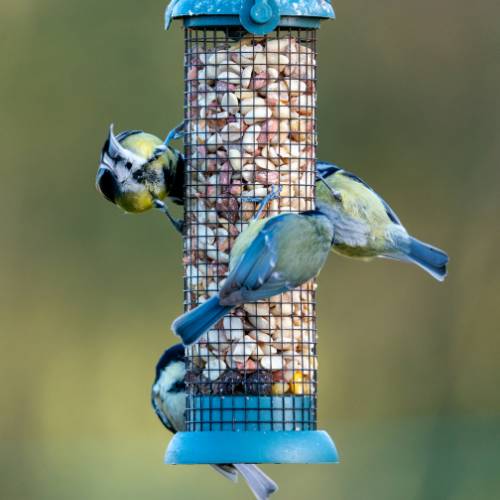
Pigeon Proof Feeders
Pigeon proof feeders restrict access to larger birds like pigeons so smaller garden birds like finches, tits and robins can feed in peace. If you want to prevent food dominance by larger birds and create a more balanced and thriving garden ecosystem then these feeders are the solution. By limiting pigeons access to the food these feeders will also reduce food waste and extend the life of your bird feed.
One of the main benefits of pigeon proof feeders is to encourage a diverse birdlife. With fewer pigeons dominating the feeding area a wider range of bird species will visit your garden. This will not only enhance your outdoor space but also support the health and wellbeing of smaller birds by providing them with a consistent food source.
Squirrel Proof Birdseed Feeders
Squirrel proof birdseed feeders are essential to protect your bird food from these clever thieves. Designed to stop squirrels stealing food, these feeders will ensure birds get the nutrients they need, especially during harsh winters when food is scarce.
By reducing spillage and damage squirrel proof feeders will keep your feeding station tidy and extend the life of your feeders.
Mechanisms
Squirrel proof feeders use various mechanisms to stop squirrels and other wildlife getting to the bird food. One common method is the weight activated mechanism which blocks access when a heavier animal like a squirrel tries to feed. This will ensure only birds can get to the food and a safe and squirrel free environment for them.
Another design is the caged feeder which allows smaller birds in and keeps larger animals out. Brands like BeakyBites offer a range of squirrel proof feeders with these clever mechanisms so your bird feeding will be successful and enjoyable.
Buying squirrel proof feeders will create a more welcoming and safe haven for birds in your garden.
Choosing the Right Birdseed Feeder
Choosing the right birdseed feeder involves considering a few things, the bird species you want to attract, where you will place the feeder and how much maintenance is required to keep it clean and safe for the birds.
Different feeders attract different small bird species so choose one that suits your target birds feeding habits and preferences.
Bird Species
Consider the birds you want to attract and their feeding habits when choosing a birdseed feeder. For example tube feeders are great for small birds like finches as they stop larger birds getting to the food. Knowing the preferences of different bird species will help you choose the right feeder for your garden.
Also some bird species prefer specific types of seeds like Niger seeds for finches. Choosing feeders that cater to these preferences will increase the chances of attracting the bird species you want and a diverse bird population in your garden.
Feeder Placement
Feeder placement is key to attracting the most birds and keeping them safe from predators. Different birds have different preferences; some like feeders on the ground and others like them elevated. Hanging bird feeders from tree branches or a shepherd’s crook will keep them accessible and visible to birds and make your garden a feeding hot spot.
Placing feeders wisely will create a bird friendly environment. By placing feeders in quiet areas where they are safe from predators but close to cover for quick access you can get more birds to visit and feed in your garden.
Free Delivery Deals
Maintenance and Cleaning
Regular maintenance and cleaning of feeders will stop pests and keep birds safe. Cleaning with a diluted bleach solution will stop the spread of disease among birds. Clean your feeders every two weeks to stop mold and disease and keep your garden birds healthy.
Replacing wet or rotten seed is also important for a healthy feeding environment. Tube feeders are great for keeping seed dry and preventing bird droppings getting to the seed, so are good for perching birds.
Regular maintenance will keep your bird feeders a safe and attractive feeding spot for birds all year round.
Birdseed
Bird feeders can hold different types of food, seeds, peanuts, suet and dried mealworms. Offering a mix of these will attract more bird species to your garden.
Different feeders hold different types of food, providing food diversity and your garden will be more attractive to wild birds and seed feeders.
Sunflower Hearts
Sunflower hearts are a favourite among many bird species because of their high fat content and ease of eating. These seeds are husk free so they are waste free and easy for birds to eat.
Sunflower hearts attract a variety of birds including siskins, tits and goldfinches and provide them with energy and nutrition.
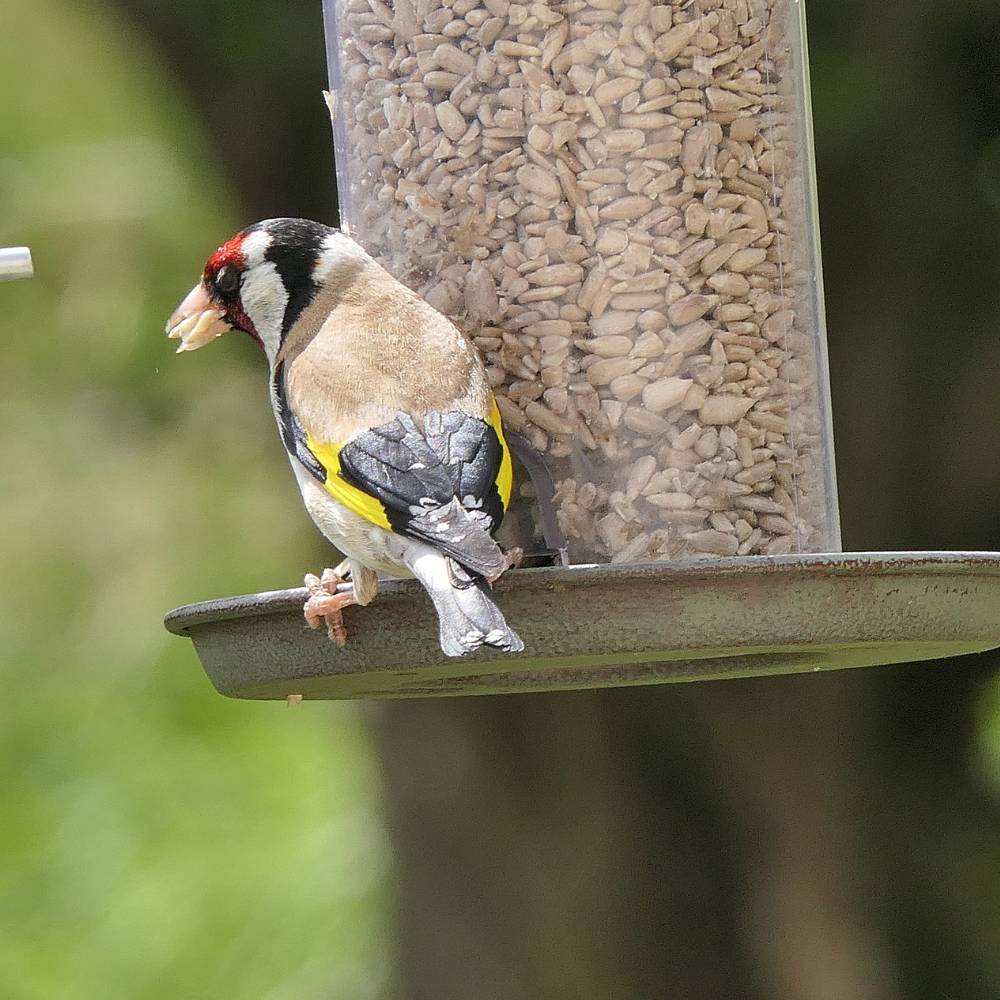
Niger Seeds
Niger seeds are favourite among many finch species so are great for attracting these colourful birds to your garden. Tube feeders with small feeding ports are the best option for Niger seeds as they stop larger birds getting to the seed.
Using Niger seeds in feeders designed for them will get the most finches into your garden.
Mixed Seeds
Using mixed seeds will cater for a wider range of bird species as different birds like different types of seed. No Mess Mix for example contains husk free ingredients like sunflower hearts so is great for tidy feeding.
Mixed seeds provide food diversity, will attract a wide range of bird seed to your garden all year round.
Creating a Bird Friendly Habitat
Creating a bird friendly habitat is more than just providing food; it’s also about providing shelter and natural food sources. Planting native trees and shrubs in your garden will provide shelter and food for birds and make your outdoor space more attractive to wild birds.
This will increase biodiversity and support local bird populations.
Water Sources
Having water sources like bird baths in your garden is important for hydration and bathing for birds. Clean water is essential for birds, it’s a drinking source and a means of bathing which keeps their feathers in condition.
Having a bird bath or similar water feature will make your garden more attractive to birds.
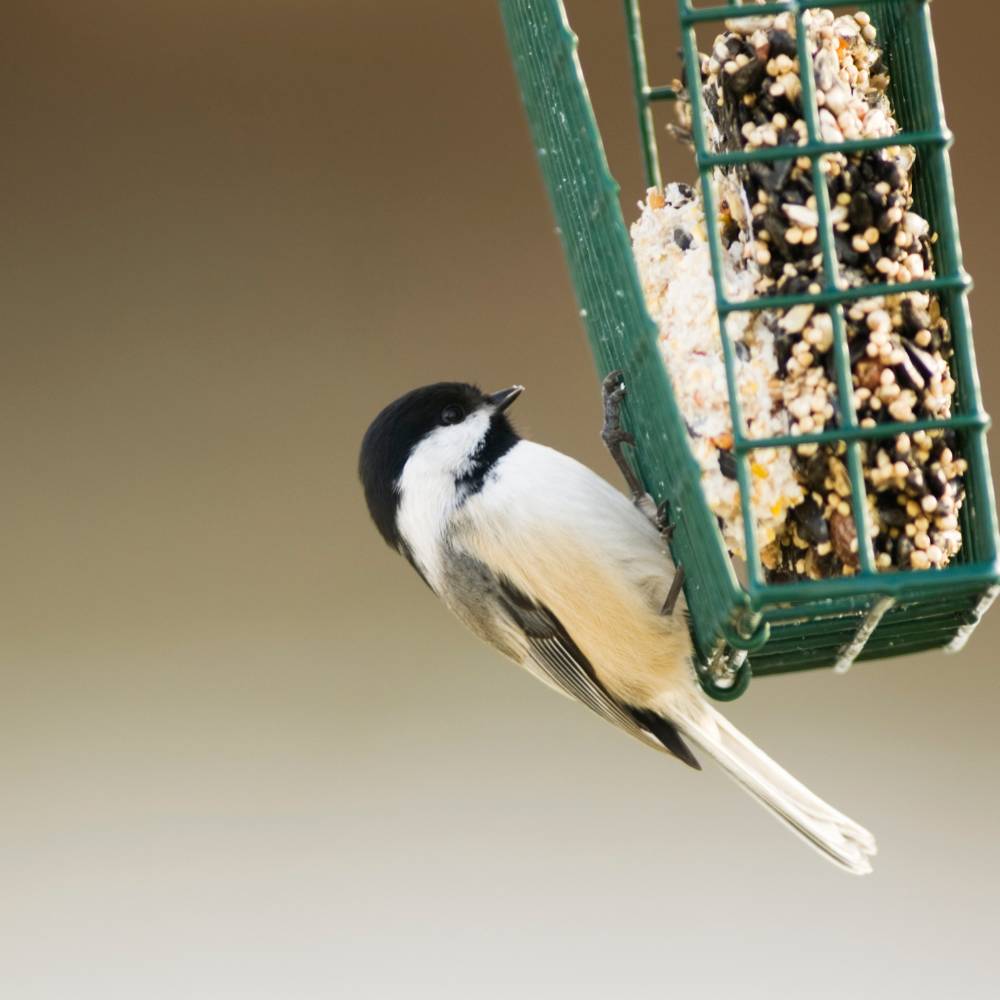
Seasonal Feeding Tips
Seasonal feeding will allow you to tailor your feeding to the changing needs of birds throughout the year. By offering different types of food at different times of the year you can help birds thrive and keep their energy up and have a healthy bird population in your garden.
Winter
In winter birds need high energy foods like suet and fat balls to survive. These foods provide calories and protein to help birds cope with cold weather and survive when natural food is scarce.
Regular high energy feeding in winter is vital for garden birds.
Spring and Summer
In spring and summer high protein foods are important to support birds during breeding and moulting. These nutritious foods will help nesting birds raise their young and fledglings get the nutrients they need to grow healthily.
Seasonal feeding supports the natural life cycle of birds.
Autumn
As autumn approaches you need to get your feeders ready and restock your bird food so birds have enough for winter. High energy foods like suet, sunflower seeds and peanuts are great for attracting birds looking for food in winter.
Regular maintenance of feeders is also important at this time to prevent food spoilage and reduce the risk of disease in birds.
Conclusion
In summary, choosing the right birdseed feeder and offering different types of bird food will increase the biodiversity in your garden. By knowing the different types of feeders, from tube and hopper feeders to platform feeders and bird tables you can attract a wide range of bird species and have a lively outdoor space. Regular maintenance and seasonal feeding will make your efforts pay off all year round. Get quality feeders and varied birdseed and enjoy the wild birds in your garden.
Frequently Asked Questions
What type of birdseed feeder is best for small birds?
- Answer: Tube feeders are best for small birds like house sparrows and finches as their small feeding ports will deter larger birds.
How can I stop pigeons taking over my bird feeders?
- Answer: To stop pigeons taking over your bird feeders use pigeon proof feeders that restrict access to larger birds and allow smaller garden birds to feed without disturbance. This will give you a more balanced and enjoyable feeding experience.
How do I stop squirrels getting to my bird feeders?
- Answer: The best way to stop squirrels getting to your bird feeders is to use squirrel proof feeders with weight activated mechanisms and caged designs. This will keep the bird food safe and only allow birds to feed.
How often should I clean my bird feeders?
- Answer: Clean your bird feeders every two weeks with a diluted bleach solution to prevent disease and keep the environment healthy for the birds. Regular maintenance is important for their health.
What to feed in winter?
- Answer: High energy foods like suet, fat balls and sunflower hearts. Essentials for winter.
